Military Clashes in Sudan: What Caused Them and What Do They Mean for JICA’s Efforts?
2023.05.30
The northeastern African country of Sudan has been the site of violent armed clashes between the Sudanese Armed Forces (SAF) and the Rapid Support Forces (RSF), a paramilitary group, that began on April 15. After returning to Japan later that month, Sakane Koji, Chief Representative of the JICA Sudan Office, discussed the reasons behind the conflict in a country that was thought to be making a transition toward democratic governance, the present situation there, and the status of programs run by JICA.
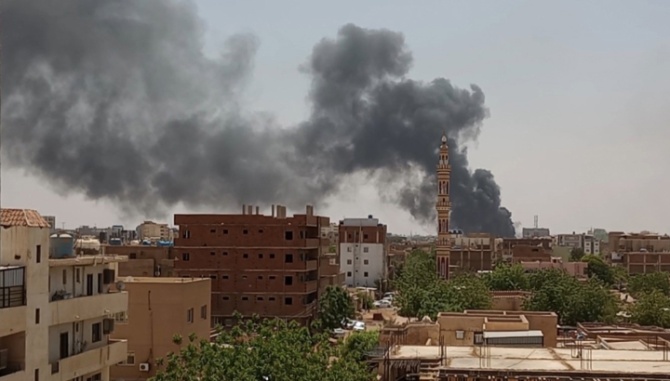
In late April, as the fierce fighting continued in various parts of the country—particularly in the capital of Khartoum and the Darfur region—nine Japanese staff members from the JICA Sudan Office returned to Japan. “But the evacuation of Japanese people is not the end of the story,” said JICA’s Chief Representative Sakane. “What we do going forward will determine our true value as a development cooperation organization.”
According to the United Nations Office for the Coordination of Humanitarian Affairs, as of May 15, more than 930,000 Sudanese have been forced to evacuate domestically or across the country’s borders. In Khartoum, in addition to shortages of food, water, and fuel, communications have been disrupted, banking systems and medical facilities have broken down, and the lives of many citizens are at risk.
“Sudanese staff members who have worked with us still remain on site,” said Sakane. “We want to do everything we can to ensure their safety and that of the other Sudanese people who are left behind.” He says that the Japanese staff are continuing to provide the Sudanese staff with daily information on the battle situation and security in the area via social media from Japan. JICA is also working to facilitate the Sudanese staff members’ departure to neighboring Egypt.
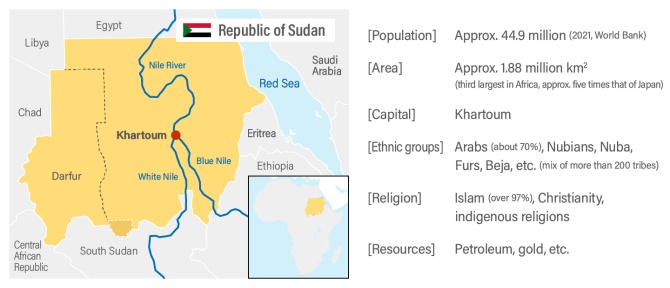
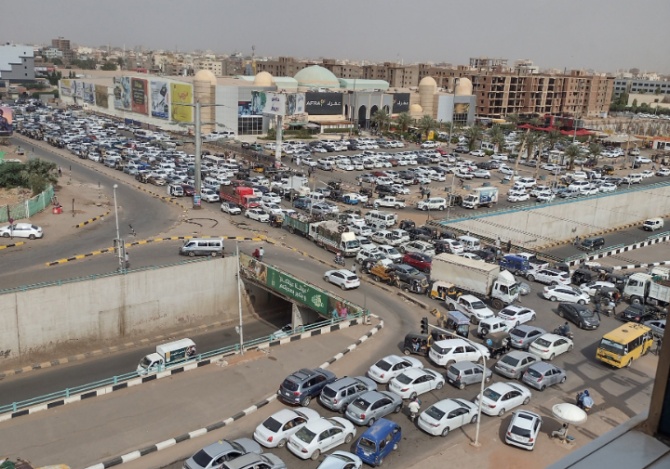
The city of Khartoum before the violent clashes began.
Sakane pointed to the Bashir administration, which collapsed in 2019, as the spark of the conflict. After 30 years of dictatorship that began in 1989, President Bashir was ousted following popular demonstrations for democracy. The militia group Janjaweed, which had been responsible for a number of genocidal attacks during the Darfur conflict, became the paramilitary group Rapid Support Forces and expanded power under the president’s patronage.
A transitional democratic government was formed after the fall of the Bashir administration, and a framework agreement to form an interim government was reached in December 2022. Just when the democratization process seemed to have reached its final stage, conflict arose over the pending integration of the SAF and the paramilitary RSF. This is believed to have been a factor in the latest armed clashes.
There is no sign of an end to the conflict, and Sakane expressed his frustration. “I have to say that the road to democratization has become much longer,” he said. “We just want to continue to support the Sudanese people who have been working tirelessly to rebuild their country, not the military or the politicians."
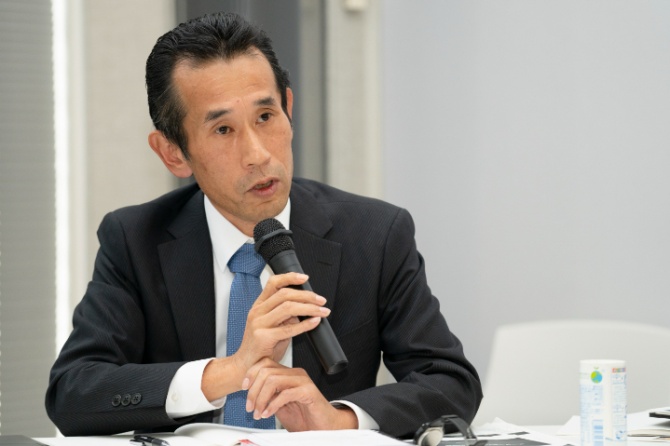
Chief Representative Sakane Koji explained the current situation and the background of the clashes at a study session for journalists held on May 12.
Sudan has been repeatedly subjected to popular uprisings and armed rule following military coups since it gained its independence in 1956. In order to rebuild the basic infrastructure for daily life that has been devastated by years of conflict, JICA has provided assistance in the areas of healthcare, water and sanitation, agriculture, and the environment (waste management). The aim has been to “develop government agencies and officials that can provide better services for the people.”
Part of the healthcare assistance provided by JICA has been the reinforcement of Sudan’s national health insurance system. The country’s prolonged civil war has caused inadequate healthcare and high infant and maternal mortality rates. JICA launched the Project for Capacity Development of National Health Insurance toward Universal Health Coverage, with the aim of ensuring that everyone has access to health services of sufficient quality without suffering financial hardship. Among the programs are the development of maternal and child healthcare wards and expanded care for pregnant and nursing women.
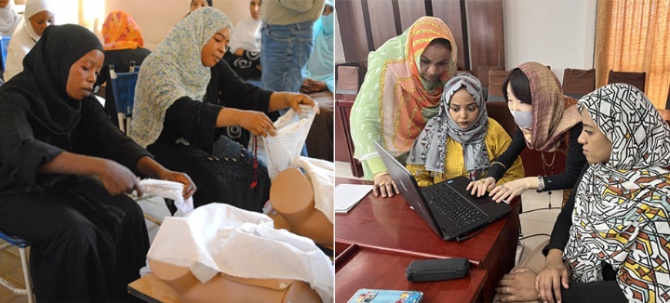
(Left) Village midwives practice childbirth assistance at a midwife training program. (Right) JICA has been working with Sudanese government officials to reform the healthcare system through the Project for Capacity Development of National Health Insurance toward Universal Health Coverage.
Agriculture is a key industry for Sudan and JICA has been focusing on irrigating the Nile River Basin and supporting farmers. The agency is also helping to strengthen rice cultivation and develop varieties of wheat that are resistant to dry and hot conditions. Through the Clean Cities Project in Sudan, garbage trucks depicting characters from “Captain Tsubasa,” a Japanese manga popular in Sudan, collect garbage using the Japanese-style “fixed-point” collection system. These are some of the ways JICA has contributed to improving the quality of the Sudanese people’s lives.
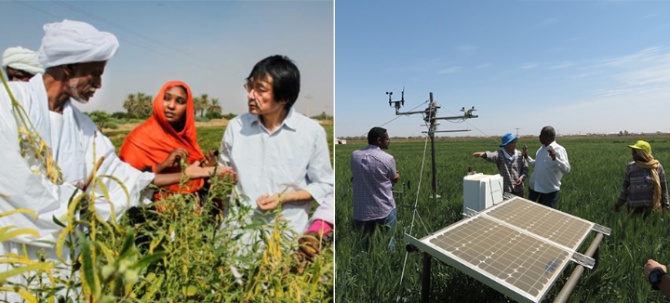
(Left) Harvesting peanuts that have been grown via an irrigation project in the semi-arid River Nile state. (Right) Weather observation equipment has been installed to predict the effects of climate change on wheat cultivation.
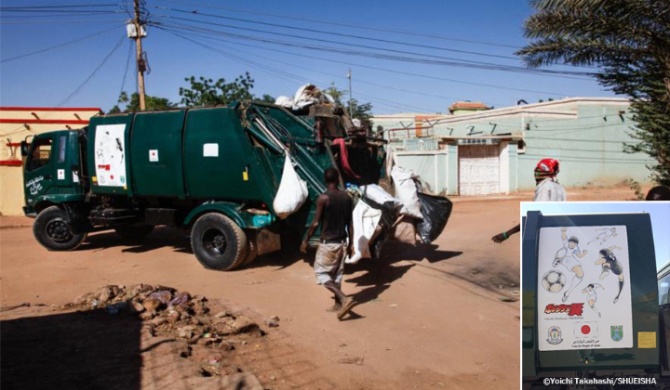
Garbage collection trucks decorated with stickers from the popular Japanese manga “Captain Tsubasa.”
Sudan is bordered by seven countries, and faces the Red Sea, with the Saudi Arabian city of Mecca on the far shore. Since ancient times, the area has been home to a diverse population, and has benefitted from the rich bounty of the Nile River. “The Sudanese people are very kind,” said Sakane. As an example, he described how clay water pots full of water can be seen throughout Sudanese settlements, available for use by any thirsty passersby.
Sakane reported that while JICA’s development cooperation has had a positive impact, the economic stagnation caused by the prolonged civil war has resulted in high unemployment levels. In fact, it is believed that 70 percent of the young people wish to leave the country within three years. Sakane expressed his hope that the international community will discuss how it can make substantial contributions to controlling and stopping the rule of governance by force. “We no longer live in an era in which one country can live alone, without mutual support from and collaboration with other countries,” he said. “We would like to continue to support the development of Sudan, for the sake of the future of Japan as well.”
scroll